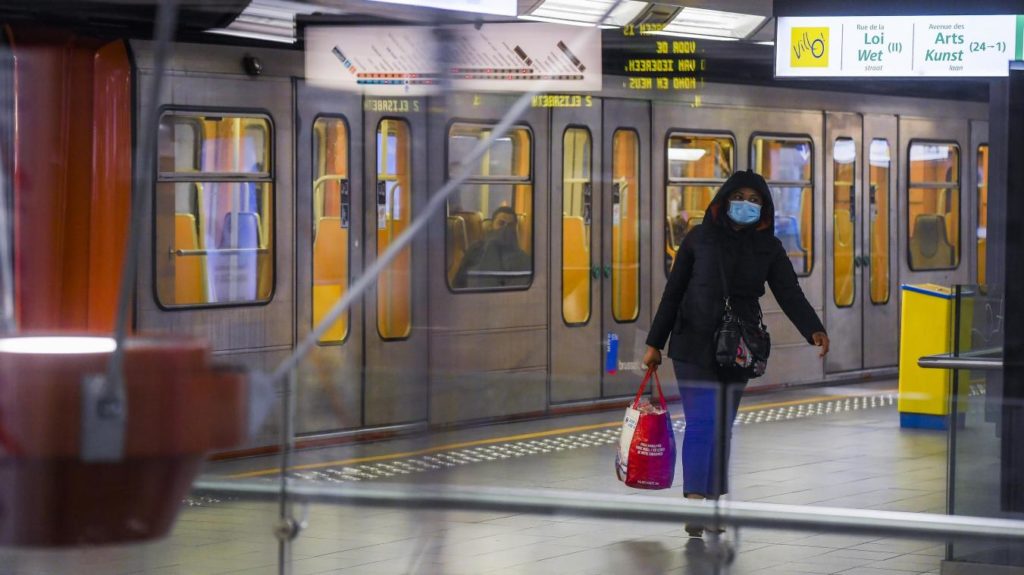The Brussels public transport operator STIB does not expect passenger numbers to return to pre-pandemic levels in 2022.
Although the company reported an increase in journeys made in 2021 – 273.8 million and up 12% on the previous year – this figure is still only 70% of 2019 levels when more than 400 million trips were registered.
"It is difficult to predict the future and what will happen in 2022, but we don't expect our passenger numbers to return to pre-pandemic levels this year," Guy Sablon, a STIB spokesperson, told The Brussels Times.
From 2023 onwards, assuming that the next coronavirus waves decrease in intensity, the company expects trips to once again reach normal levels.
Last year, weekend passenger numbers reached 90% of 2019 levels. Yet weekday figures remained lower than before the coronavirus crisis, mainly due to teleworking reducing commuting.
Fewer passengers, increased comfort
Even if the government's advice for teleworking is relaxed, the pandemic has lead to structural changes that will see many companies continuing with a hybrid form of working.
STIB expects this to have a lasting impact: "We expect to lose passengers as a result of this."
Related News
- Company cars more popular than ever
- Huge delivery delays as manufacturers struggle to keep up with demand for electric cars
- Thousands of diesel vehicles will no longer be allowed to drive in Brussels
However, Sablon stressed the benefits that might arise from this. "Vehicles will be less crowded – before the pandemic, we really reached our highest capacity." This often resulted in overcrowded vehicles, even outside peak hours.
"Now, the supply side of our services is greater than the demand, meaning that capacity is also greater." This should make travel on public transport a more enjoyable experience.
Despite this drop in demand, the company continues to invest in its network by adding new and more trains to metro lines – most recently on lines 2 and 6.
"New trams and buses are also gradually being put into service which again will result in more capacity."
Situation in Flanders
Preliminary figures shared with The Brussels Times show that passenger numbers halved for Flemish public transport operator De Lijn in 2021 compared to 2019, which is seen as the pre-coronavirus reference period.
In addition, passenger numbers strongly correlated with the coronavirus waves recorded in Belgium. Yet when considered over the whole year, passengers on De Lijn's services dropped by only 1% in 2021 compared to 2020.
However, it is difficult to compare figures for STIB and De Lijn: they operate in different areas – STIB is exclusively urban, whereas De Lijn also includes trips to rural regions. Additionally, STIB monitors the number of passengers based on percentages of fixed reference periods, while the Flemish public transport company compares the number of passengers per week on a yearly basis.
The annual figures from railway company SNCB are expected to be published in the coming days.

